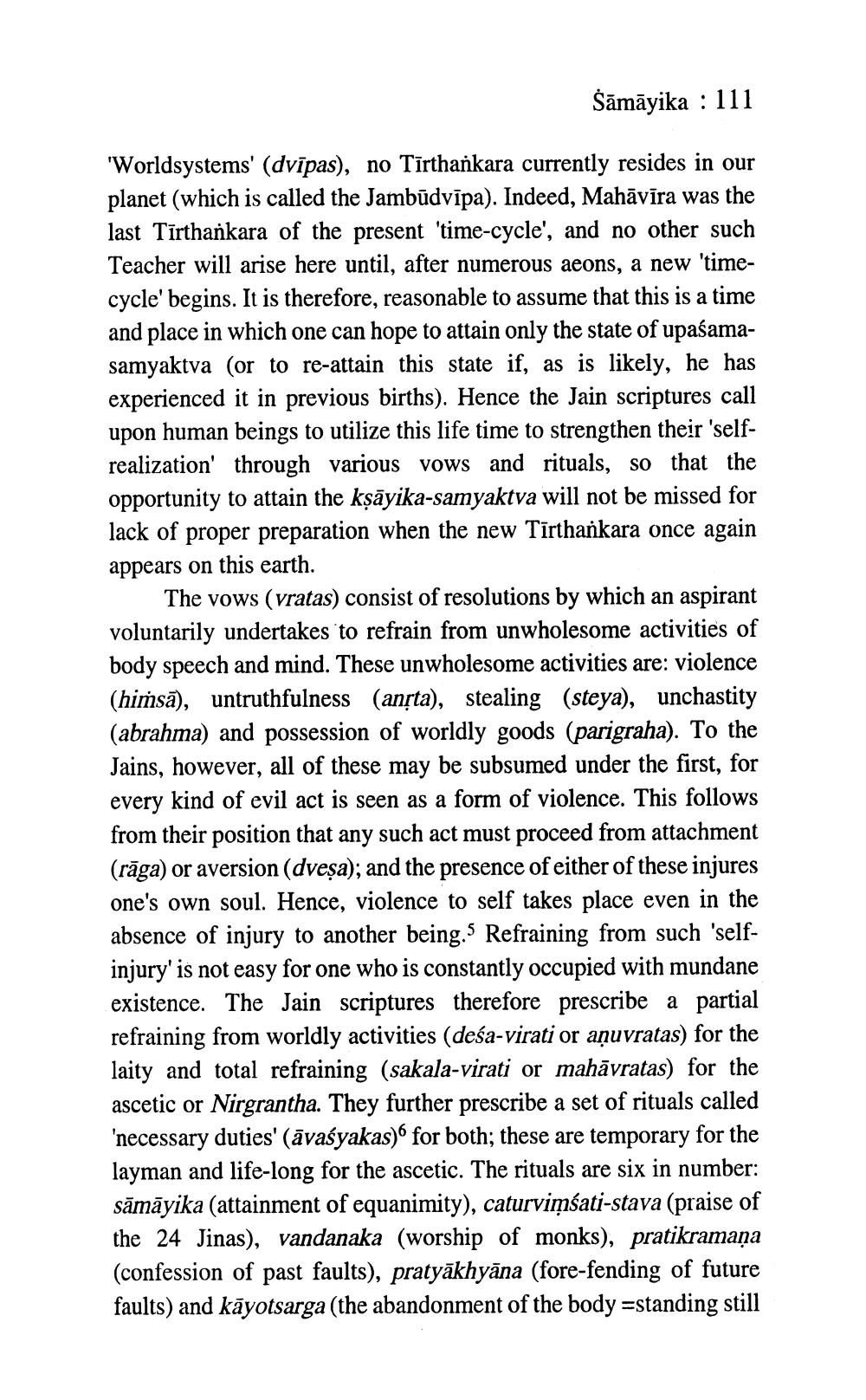________________
Šāmāyika : 111
'Worldsystems' (dvīpas), no Tirthankara currently resides in our planet (which is called the Jambudvipa). Indeed, Mahāvīra was the last Tīrthankara of the present 'time-cycle', and no other such Teacher will arise here until, after numerous aeons, a new 'timecycle' begins. It is therefore, reasonable to assume that this is a time and place in which one can hope to attain only the state of upasamasamyaktva (or to re-attain this state if, as is likely, he has experienced it in previous births). Hence the Jain scriptures call upon human beings to utilize this life time to strengthen their 'selfrealization' through various vows and rituals, so that the opportunity to attain the kṣāyika-samyaktva will not be missed for lack of proper preparation when the new Tirthankara once again appears on this earth.
The vows (vratas) consist of resolutions by which an aspirant voluntarily undertakes to refrain from unwholesome activities of body speech and mind. These unwholesome activities are: violence (himsa), untruthfulness (anṛta), stealing (steya), unchastity (abrahma) and possession of worldly goods (parigraha). To the Jains, however, all of these may be subsumed under the first, for every kind of evil act is seen as a form of violence. This follows from their position that any such act must proceed from attachment (rāga) or aversion (dveṣa); and the presence of either of these injures one's own soul. Hence, violence to self takes place even in the absence of injury to another being.5 Refraining from such 'selfinjury' is not easy for one who is constantly occupied with mundane existence. The Jain scriptures therefore prescribe a partial refraining from worldly activities (deśa-virati or aṇuvratas) for the laity and total refraining (sakala-virati or mahāvratas) for the ascetic or Nirgrantha. They further prescribe a set of rituals called 'necessary duties' (avaśyakas) for both; these are temporary for the layman and life-long for the ascetic. The rituals are six in number: sāmāyika (attainment of equanimity), caturvimśati-stava (praise of the 24 Jinas), vandanaka (worship of monks), pratikramaṇa (confession of past faults), pratyākhyāna (fore-fending of future faults) and kayotsarga (the abandonment of the body =standing still




